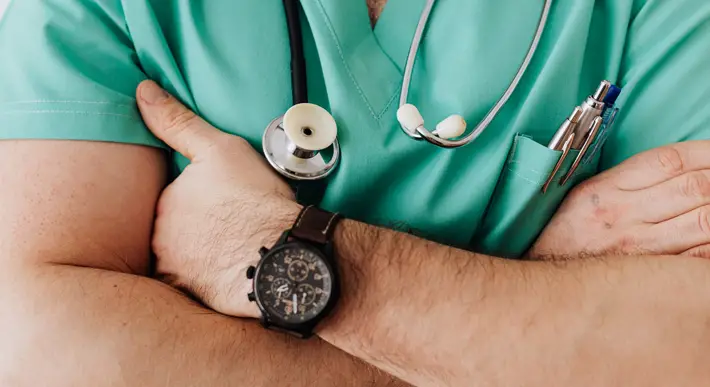What to Do if You Suspect Medical Malpractice

As patients, we trust and rely on our doctors. Unfortunately, if they make a mistake while providing us with medical care, it’s often difficult to detect before the consequences become severe.
According to data from a 2016 study conducted by researchers from John Hopkins University, medical errors are responsible for nearly 10% of all deaths in the United States, making them the third leading cause of death in the country. This means that every year, over 250,000 individuals are killed as a result of medical error, with many more suffering non-fatal injuries.
Hopefully, your doctor has given you no reason to be concerned, but since medical malpractice is so widespread, it’s important to know what to do to protect your rights.
Medical Negligence vs Malpractice. What’s the Difference?
Medical malpractice and medical negligence are distinct yet closely related in that medical malpractice is a type of negligence. While all medical malpractice involves negligence, not all cases of negligence are considered malpractice under the law.
Negligence is a legal concept used in personal injury law to determine whether a person or a company causes you harm by being careless or reckless. The ultimate goal is to hold that person or company liable for the losses you suffered as a result.
In the context of personal injury cases, negligence refers to the defendant’s failure to do something that resulted in harm. In medicine, negligence is defined as a doctor’s failure to uphold the patient-physician relationship in an adequate manner when compared to the practices of their peers. Most often, this failure involves making a mistake that results in harm to the patient.
For example, accidentally leaving surgical tools inside a patient after a procedure has been completed would be considered medical negligence. Although the doctor didn’t do it on purpose, this needs to be acknowledged as a mistake with serious consequences.
As we mentioned before, malpractice falls under the legal concept of negligence. It refers to a breach of the patient-caregiver contract that was committed intentionally. The caregiver could be a doctor or any hospital staff member who has a duty of care toward the patient in question. In a medical malpractice case, the healthcare provider was aware of what would help or harm the patient and knowingly chose the option that harmed them.
This doesn’t mean that their goal was to hurt the patient, just that they did something they knew would result in harm.
As you can see, the main difference between negligence and malpractice is intent. You can learn more about the legal implications of medical negligence and malpractice by visiting CompensationCalculatorUK.co.uk.
Consult a Different Doctor
People who suspect they have been victims of medical malpractice should put their health first and consult a different doctor as soon as possible. Before correcting the mistakes of the first doctor, the second doctor will most likely need to review your medical records and run tests.
If, for instance, you were misdiagnosed by your first doctor, and that’s what led to complications, your second doctor will perform a series of diagnostic tests in order to find the correct diagnosis. If, on the other hand, the diagnosis was correct and the problem stems from how your condition was treated, they will focus on treating your condition correctly, as well as the damage caused by your first doctor.
These changes in diagnosis and treatment will also serve as proof to help you build a case against your first doctor so you can claim compensation for the harm done to you.
Request a Copy of Your Medical Records
You have the right to a copy of your medical records, so your next step is to take advantage of this right. You don’t have to provide any explanation as to why you are making this request. It’s not advised to inform your doctor or the medical facility where they work that you need these records because you intend to file a lawsuit. This might prompt them to falsify the information and lead to other legal complications that can undermine your case.
Medical records contain detailed information regarding your medical history, symptoms, tests performed, diagnosis and treatment. They play an essential role in a medical malpractice case. The information in them, coupled with the information from your second doctor, can be used to prove you were a victim of medical malpractice.
Contact a Medical Malpractice Attorney
After you get your records, your next step should be to contact a medical malpractice attorney. Medical malpractice cases are extremely complex, so it’s not practical to think that you can represent yourself or invest the time and energy needed while you’re still recovering from health complications.
The majority of medical malpractice attorneys will provide you with a free consultation to discuss your claim and offer preliminary guidance. You can tell them what happened and bring your medical records. Be as detailed as possible. They’ll be able to tell you if you have a case or not.
Since the first consultation is free, we recommend you schedule consultations with several attorneys so you can benefit from multiple points of view. You should also know that most medical malpractice attorneys work on a contingency basis, so they will get their fee only if they win your case.
Once you hire an attorney, they will take charge of all the details of your case, including launching an investigation and handling all the paperwork. You can focus on your health.
Document Your Experience
Your attorney will also advise you to document your experience. You may forget important details, so it’s best to keep a journal where you write down the dates, times, names of medical professionals, treatments, medications prescribed and dosages.
Include a summary of every doctor’s appointment, your symptoms and how these symptoms have affected your life. For example, you had to take time off work, or you could no longer perform household chores and had to hire someone to help.
This journal will help you get compensated, but it will also help you emotionally since this will most likely be a stressful time.










